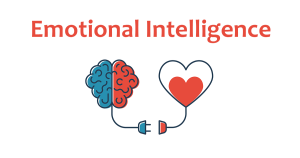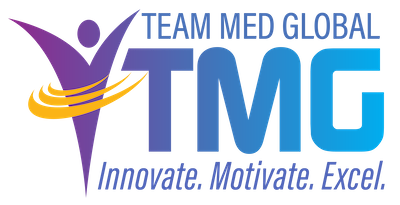 TMG’s Executive MSP Competency Model includes emotional intelligence as a necessary skill for personal effectiveness. While an MSP’s technical expertise and knowledge are important, emotional intelligence (EQ) is what enables you to effectively navigate interactions, manage your emotions, and build strong relationships with your colleagues.
TMG’s Executive MSP Competency Model includes emotional intelligence as a necessary skill for personal effectiveness. While an MSP’s technical expertise and knowledge are important, emotional intelligence (EQ) is what enables you to effectively navigate interactions, manage your emotions, and build strong relationships with your colleagues.
The Importance of Emotional Intelligence
Emotional intelligence encompasses several components, including self-awareness, self-regulation, empathy, and social skills. Those who possess high levels of emotional intelligence are generally more adept at recognizing and understanding their own emotions and the emotions of others. This awareness allows them to manage their own reactions and behaviors effectively, even in stressful situations. Those with high EQ are more likely to establish positive relationships with their peers, superiors, and subordinates, leading to improved teamwork and collaboration.
In the workplace, EQ is particularly important for effective leadership. Leaders with high EQ are skilled at inspiring and motivating their teams, fostering a positive work environment, and resolving conflicts constructively. They are also better equipped to provide support and guidance to their team members, leading to increased job satisfaction and productivity.
Developing EQ
Developing emotional intelligence is a lifelong process, but there are several strategies you can employ to enhance your EQ. First and foremost, self-awareness is the foundation of emotional intelligence. Taking the time to reflect on your emotions, strengths, weaknesses, and values is essential. This can be done through practices such as journaling or mindfulness meditation. By understanding your own emotional triggers and patterns, you can begin to more effectively regulate your emotions.
Another crucial aspect of emotional intelligence is empathy—the ability to understand and share the feelings of others. To develop empathy, you can actively practice active listening, seeking to understand others’ perspectives without judgment. Engaging in open and honest communication is also key, as it allows you to express your emotions and thoughts clearly while fostering an environment of trust and understanding.
In addition, developing social skills is essential for building strong relationships in the workplace. This includes effective communication, conflict resolution, and teamwork. By actively seeking opportunities to collaborate with others and participating in team-building activities, you can enhance their social skills and develop stronger connections with your colleagues.
EQ can also play a role in managing stress and maintaining overall well-being. Developing strategies for stress management, such as exercise, mindfulness, and seeking support from others, can significantly improve your emotional intelligence. By effectively managing stress, you are better equipped to handle challenging situations and maintain a positive mindset.
Emotional intelligence is a vital skill set in the workplace, enabling you to navigate social interactions, manage your emotions, and build strong relationships. Developing emotional intelligence not only benefits your individual performance but also contributes to a positive and harmonious work environment, fostering increased productivity and job satisfaction for all.
